Finding Home a World Away: Asia
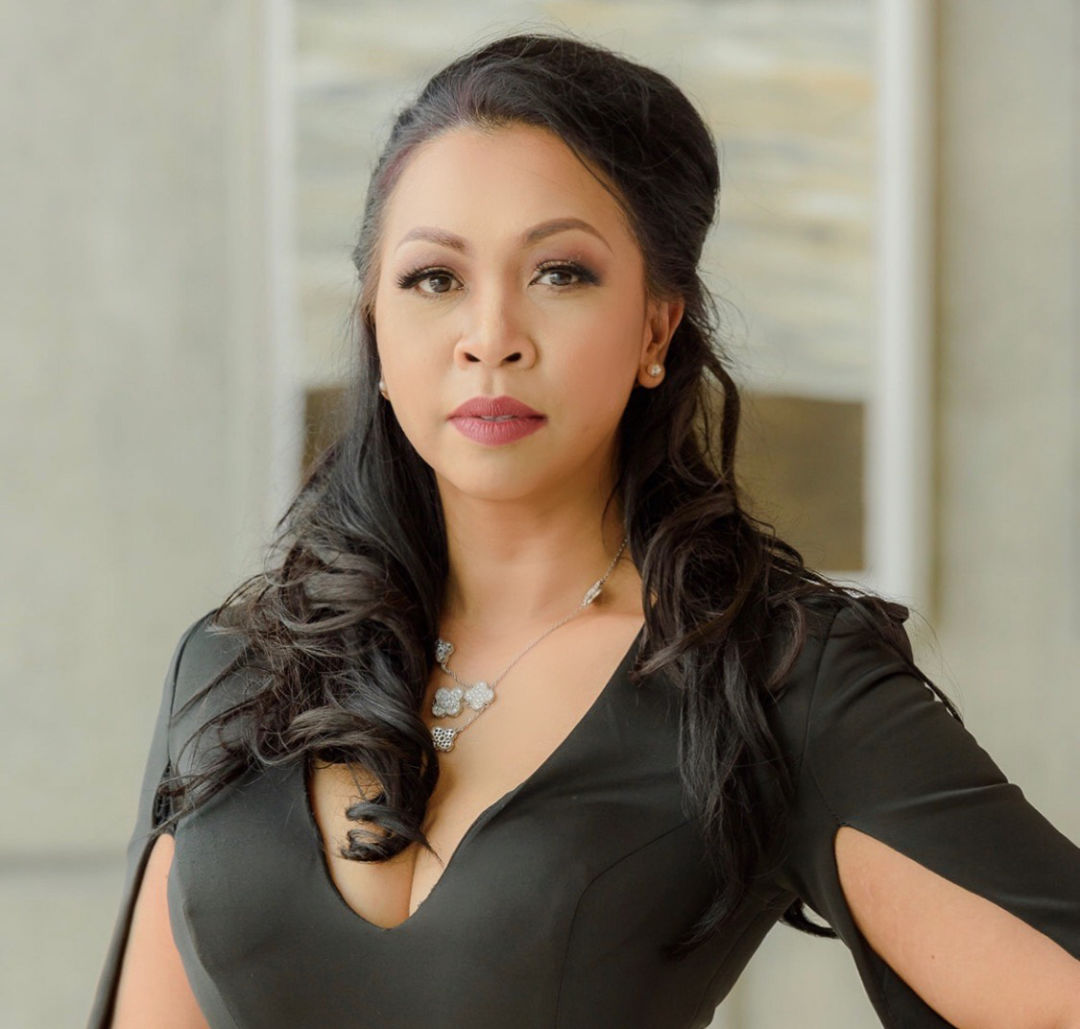
Pitsami Norm
Image: Courtesy of Pitsami Norm
Pitsami Norm
Cambodia
Norm was born in Cambodia during the rule of the Khmer Rouge, the communist regime responsible for the brutal massacre of an estimated 1.7 million people, including two of her siblings and numerous other relatives. In 1983, when she was 6, her family resettled in Massachusetts after fleeing their home in the dead of night. She grew up to pursue a degree in finance from Northeastern, and then moved to Houston, where she took a job as a mutual fund analyst and started to put down roots.
Today she’s the CEO of P.S. Affairs, an event-planning company she founded in Houston over a decade ago. Norm is proud to have supported diversity in local economic development as the former chairman of the Houston International Trade Development Council’s Asian American Pacific Islanders Initiative. “Houston is definitely the melting pot of the world,” she says. “We have a big heart here in Texas.” Norm still doesn’t feel emotionally ready to return to Cambodia after all these years, but corresponding with family there, she says, has helped her to maintain a connection to her homeland. —SE
Johnny Dang
Vietnam
Dang, his mother, and his siblings moved to Texas in 1996 to reunite with his father after nine years spent apart. The elder Dang—previously a soldier in the Vietnam War who’d escaped by boat—had established a small jewelry repair shop in Texas. Determined to follow him into the business, the younger Dang, who’d started learning the craft back in Vietnam, began repairing watches out of his car and at Bellaire’s Houston Flea Market, where he had a fortuitous meeting with Houston rapper Paul Wall. Wall was taken with Dang’s unique method of making custom-fit grills (or “grillz”) without the typical filing of teeth. Between the rapper’s connections and Dang’s skill, the pair struck gold.
Today Dang employs 50 in-house jewelers in his palatial Gulfton showroom, and you’d be hard-pressed to name a celebrity he hasn’t crafted a grill for. Everyone from Beyoncé to LeBron James can claim a set, and no self-respecting rapper’s Houston tour is complete without a pit stop at TV Johnny’s—always broadcast on Instagram Live, of course. Dang, now a fixture backstage at music festivals and elsewhere in hip-hop culture, has come a long way from his blink-and-you-miss-it cameo in the video for “Grillz,” the Grammy-nominated ode to his diamond-encrusted mouthpieces by Nelly and Paul Wall. Incredibly, it’s been 15 years. —AL
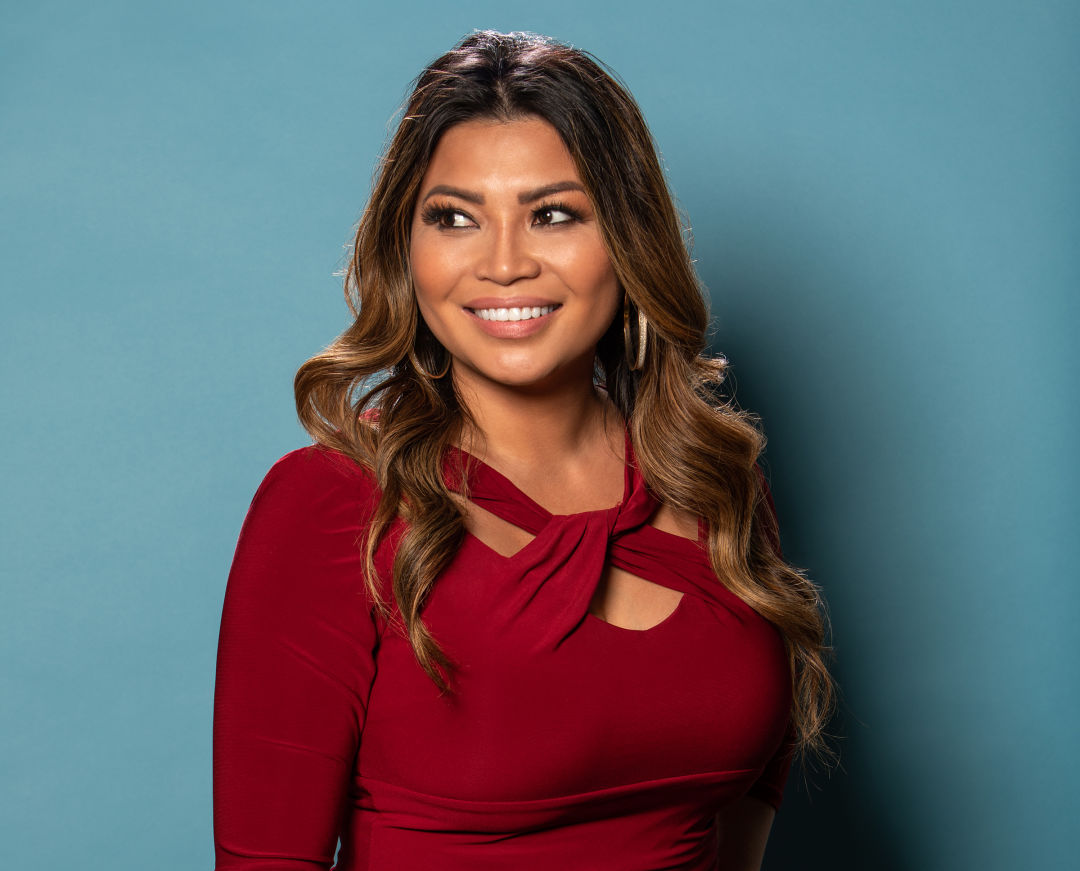
Elita Loresca
Image: Michael Starghill
Elita Loresca
The Philippines
In 1978, when Loresca was just an infant, her family moved to California from the Philippines in search of economic opportunities, for themselves and for their daughters—something Loresca, now a meteorologist with ABC 13 in Houston, appreciates. “You can’t become a scientist in a lot of countries because you’re female,” she says. “To be a minority and female and a meteorologist, that is all about being in America.”
Loresca, who studied TV journalism in college, fell for meteorology during an internship in weather, when she met her mentor, Maria Quiban, a Los Angeles anchor. “I guess you can say I fell in love with the meteorologist before I fell in love with meteorology,” she laughs. In 2015 she moved to Houston and joined ABC 13, lucky to land in one of the most diverse cities in the country, complete with loads of Filipino culture and food.
The meteorologist loves hole-in-the wall joints like Cherry Foodarama, and introducing friends to dishes like dinuguan. “Americans that don’t know what it is love it, but as soon as you tell them what it is,” she says, “they say they will never eat it again.” For the record, it’s pork blood stew, and it’s just one of the many things that have helped Loresca to feel at home in the Bayou City. “Even though my family is in California and I haven’t been to the Philippines in a long time,” she says, “the culture is right out my back door.” —JB
Gordon Quan
China
The day we visit Quan’s Galleria-area offices, he’s beaming. The immigration attorney pulls up a photo on his phone showing him posing with a Pakistani couple who recently got their green cards. In gratitude they’ve just dropped off a red-velvet cake. “They’re going back to Pakistan for the first time in 20 years,” he says proudly.
In 1948, when Quan was born in China, his family already had a history of moving back and forth between that country and the U.S. In fact, his father had served in the U.S. Army during World War II. His grandfather ran a small grocery store in San Antonio and always sent money back to his home country, where he had a three-story home and various business enterprises.
“In China my grandfather was considered a wealthy person,” Quan explains. He planned to retire there, but during the Communist Revolution he was deemed a capitalist, and a warrant was issued for his arrest. Around 1950, when Quan was a toddler, the family moved to the U.S. for good.
They ended up settling in Houston and opening a convenience store, which they lived behind, in Magnolia Park. Quan was picked on for being different—“I jokingly would say I just wanted to be Mexican,” he remembers—but he was always a leader. He went to Milby, then UT, then South Texas College of Law. After falling in love with, and marrying, a woman from Hong Kong—and realizing how difficult it was to get her papers in order—he decided to go into immigration law. He also was active in local politics and, in 1999, became Houston’s first Asian-American at-large city council member.
The Bayou City, Quan observes, has changed radically during his lifetime. “I marvel at how it’s evolved into this international city,” he says. “When I was a little boy we were the only Chinese family in our neighborhood, and Chinatown was virtually nonexistent.”
Despite an attempt to wind down his law practice a few years ago, business has continued to thrive to the point that Quan recently had to expand his offices. The law itself, he points out, hasn’t changed, but interpretations have gotten tighter and discretion has become more limited. “And that,” he says, “has led more people to seek legal advice about navigating the process.”
When he’s able to successfully help someone through that, Quan says, there is no better feeling. “The Pakistani couple from this morning said, ‘Mr. Quan, we wish we’d met you earlier,’” he says, tears springing to his eyes. “People tell me, ‘This is more valuable than money, the burden you take off people.'” —CM
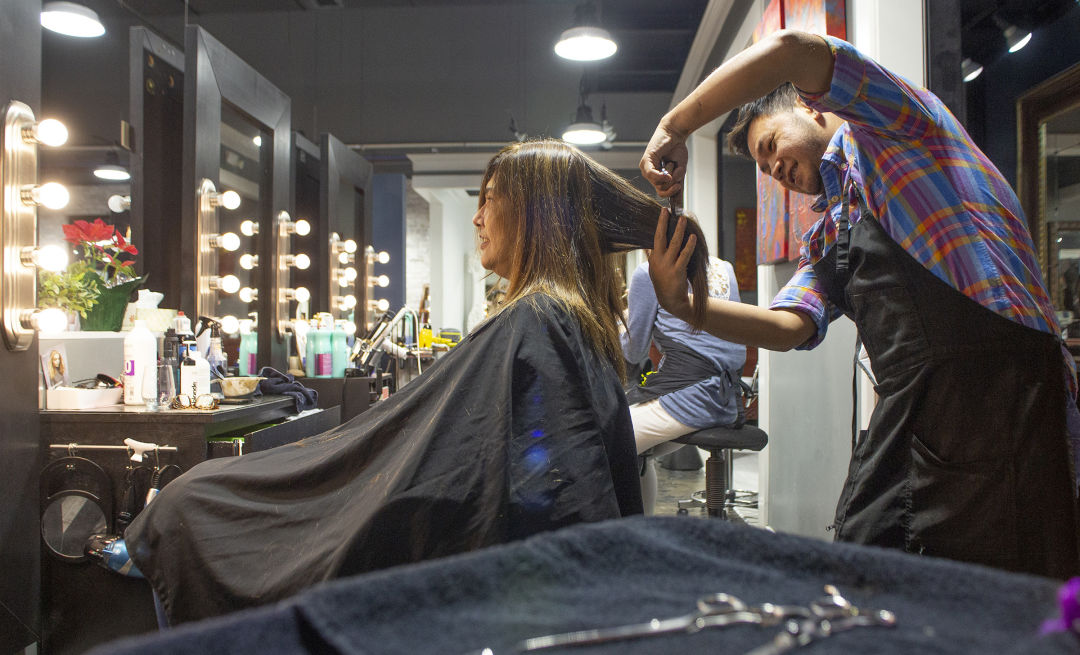
Tom Tran
Image: Thomas Shea
Tom Tran
Vietnam
Tran's father left Vietnam for Minnesota in 1981 to escape communism and try to pave the way for a better life for his family. He soon moved to Texas to work as a shrimper—in Vietnam he’d been a fisherman in his village, Qui Nhon—and a decade later the rest of the family was finally able to join him in Texas, settling in Dickinson. “I didn’t even know who my dad was until I came here,”Tran, now 38, says. “He was more like a stranger to me. I knew he was my dad because Mom said, ‘That’s your father.’”
It wasn’t just the reintroduction to his dad that was overwhelming. “It was a culture shock,” says Tran. “I had to learn a new language, and everything is bigger here, the cars, the streets.” Tran admits he was shy about his language skills until he became a hairdresser 13 years ago. That forced him to make new friends and improve his English. Always artistic, he’s found his creative outlet in styling hair. “To me, hair is art,” says Tran, who works at Satori Salon. “Coloring people’s hair is the same as painting on the canvas.” —JB
Zui Ng
Malaysia
Ng moved to Houston in 2000 to pursue his bachelor’s degree in architecture at UH even though his credits didn’t transfer here. “I had to start over,” he says, “but it was worth it.” He went on to get his master’s degree from Cornell and, after stints in other cities, returned to Houston, where he’s now an associate professor in practice at Prairie View A&M and has his own firm, ZDES Design Build.
“I don’t want to practice architecture in the traditional sense,” he says. Instead, his award-winning projects address gentrification and environmental and economic sustainability. His “Shotgun Chameleon” in the Fourth Ward, for example, pays homage to the neighborhood’s shotgun houses, while offering the option of splitting off a floor and renting it out to support the mortgage. “I’m very interested in how my profession can treat the next generation better,” he says.
Ng’s parents and two siblings eventually followed him to the U.S., where he says they have a life “that is quite impossible to have in Malaysia.” He misses his friends, extended family, and Malaysian food, though he notes that Houston has decent options in spots like Banana Leaf. Last year he found something even better in a Chinese grocery store: “My aunties make the best mooncakes on earth, and I found them here!” he exclaims. “I called back, and I was like, ‘You guys didn’t tell me you’re marketing to the U.S.’ When I saw that I was so happy, I took a picture and put it on Facebook.” —AL
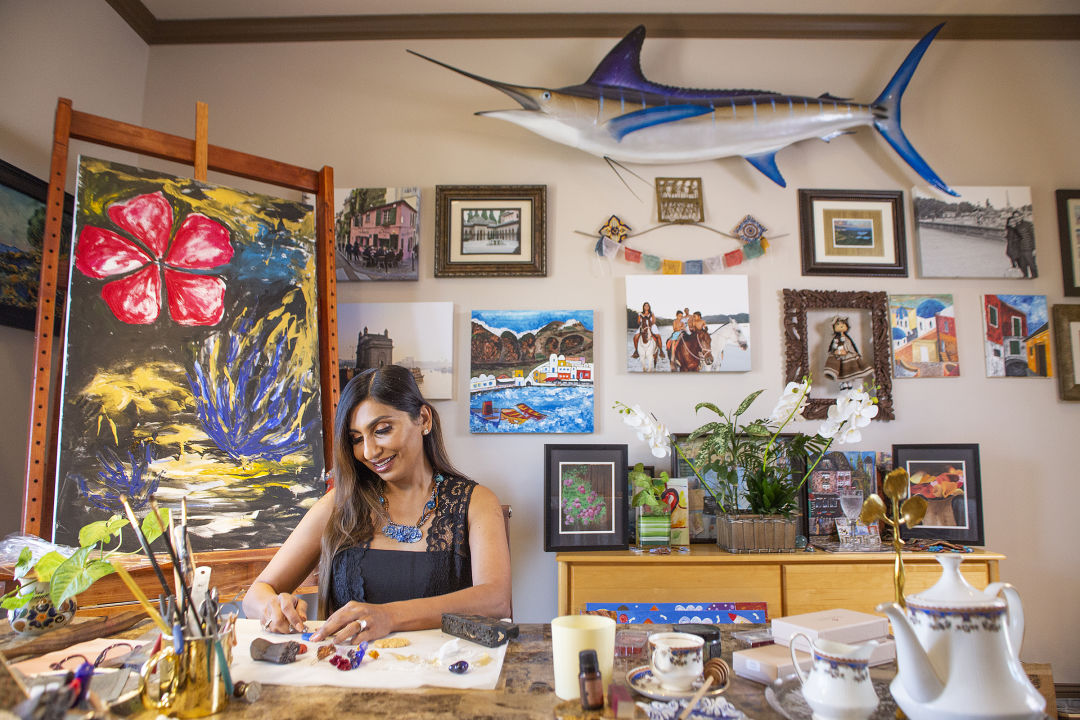
Amita Bhalla
Image: Thomas Shea
Amita Bhalla
India
When she was 16, Bhalla embarked on a sightseeing trip across the U.S., visiting California, Florida, and New York. When it was time to go back to Bombay, Bhalla broke down in tears at JFK Airport. “I was really profusely crying,” she recalls. “I had never felt so torn about going back home. I almost felt like, this is my country, too. I felt energetically called to come back to the U.S.”
It took her seven years, but she did, arriving in North Carolina in 1997 for an externship in Duke University’s neurobiology lab. After marrying in India, she and her husband, also a doctor, came back to the U.S.—this time for good, landing in Houston in 2005, where both had secured fellowships at UT. Bhalla double-boarded in neurology and sleep medicine, while her husband trained as an interventional cardiologist, and the two eventually opened their own practice here.
She acknowledges that, unlike many other immigrants, she wasn’t fleeing hardship when she moved across the world. “I lived a happy life, my family provided well for me, I had a good childhood, and I went to one of the best medical schools,” she says. “My country gave me the gift of values, but it was America—and Houston in particular—that gave me the gift of opportunity.” She gives back by assisting those in need with free clinics. Her endeavors now extend beyond medicine, too—Bhalla launched her eponymous jewelry line last year and can already count the inimitable Lynn Wyatt as a fan. —AL
Yoonshin Song
South Korea
Song began playing violin at age 5, a decision that would propel her from Seoul into a globe-trotting life as a world-renowned classical musician that brought her to Houston last year. Like most of her peers, Song doesn’t consider herself an immigrant per se—that implies a permanent move, and she intends to have an international music career. Her latest achievement came this past April when she was named concertmaster of the Houston Symphony. Song hopes that the symphony’s example of people from around the world coming together can serve as “a mirror to this country,” a reflection of America’s founding principles. “All the immigrants coming together, they learned how to be one family,” says Song. “That is America, I think.” —SE
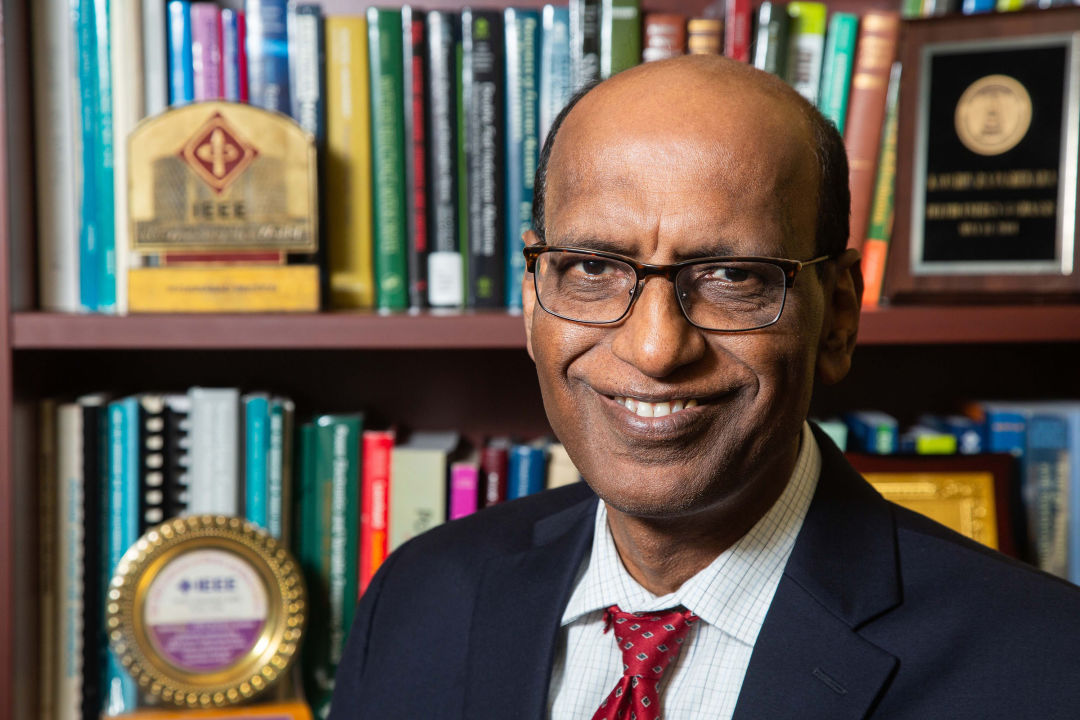
Kaushik Rajashekara
Kaushik Rajashekara
India
As a kid in rural India doing homework by the light of a kerosene lamp, Rajashekara didn’t imagine that one day he’d be revolutionizing the world of electric transportation in the Lone Star State. After studying engineering in Bangalore, he embarked on an international career developing electric vehicle technology for GM and electric aircraft technology for Rolls-Royce, arriving in the U.S. in 1987, where he’s worked in both academia and the private sector. A professor of electrical and computer engineering at UH since 2016, Rajashekara has built the school’s electric power program from the ground up. “I always wanted to work on the future,” he says. He’s doing just that at UH—among other things, his current research is focused on making flying electric vehicles(!) a reality. —SE

